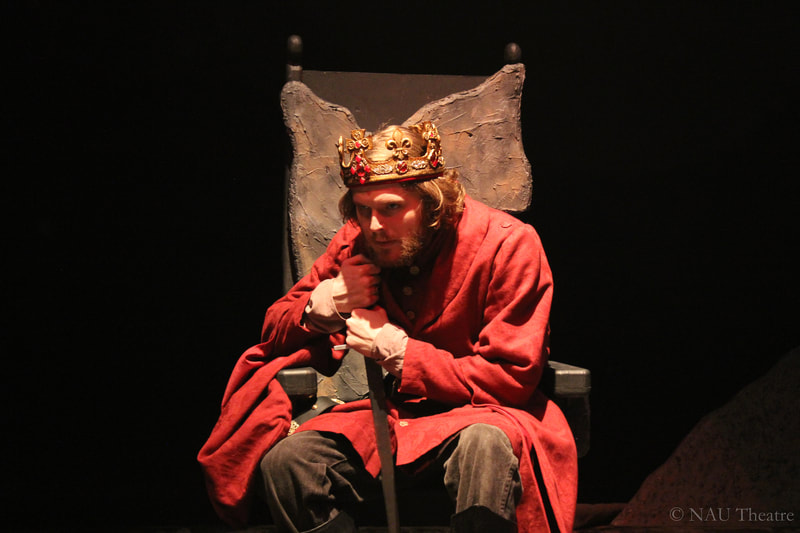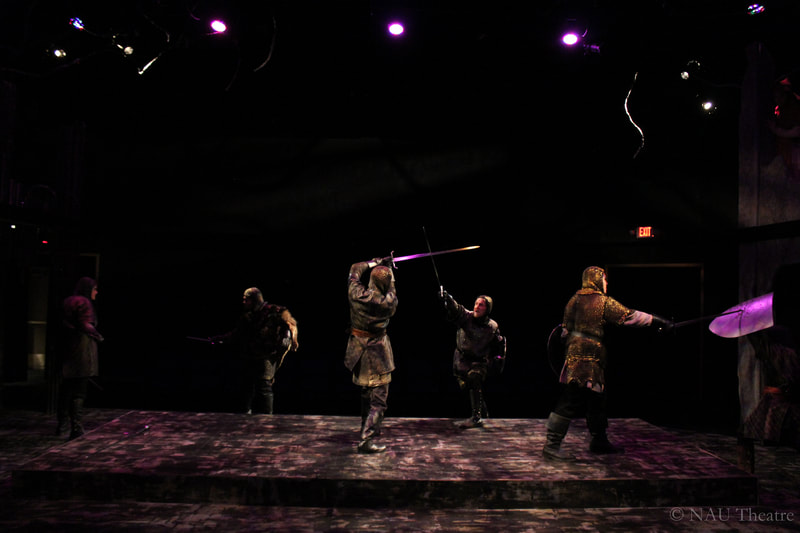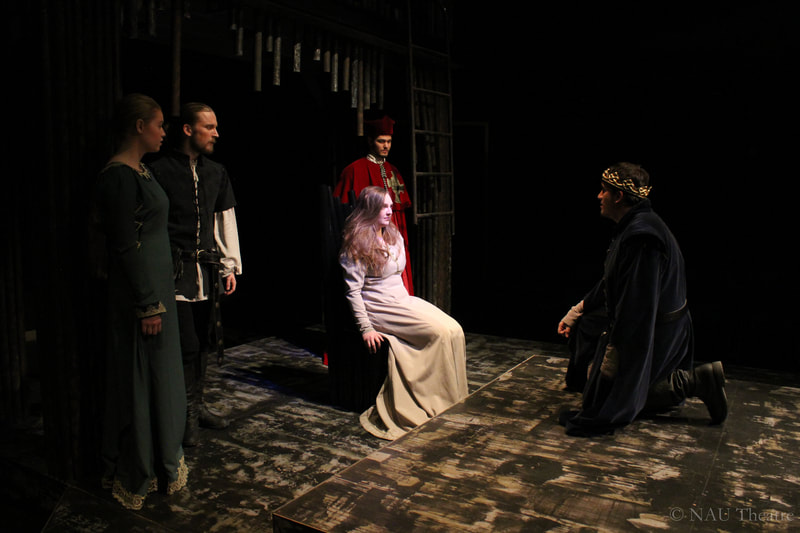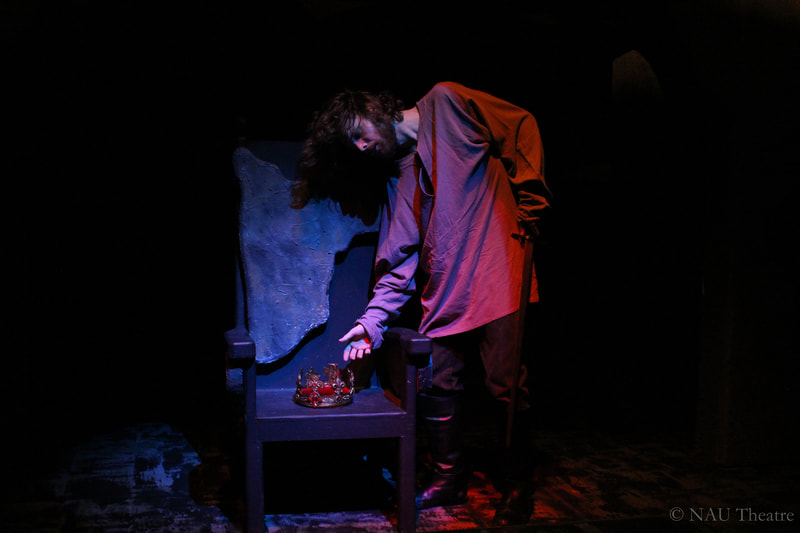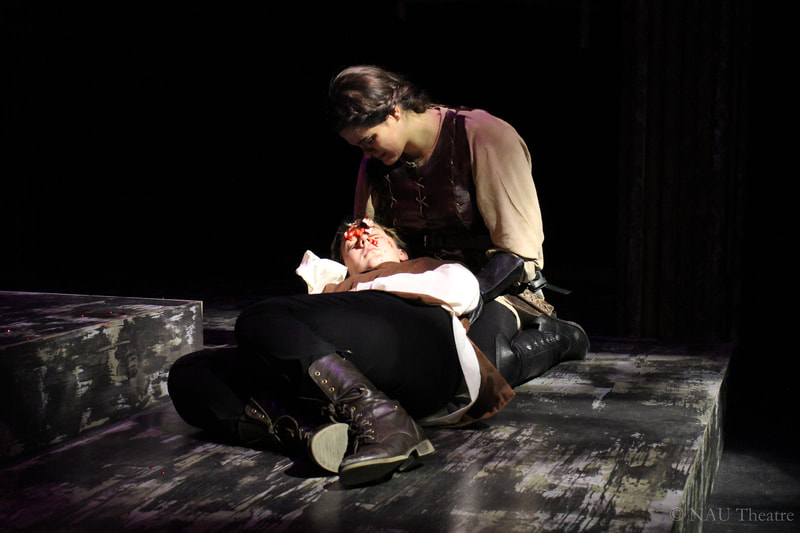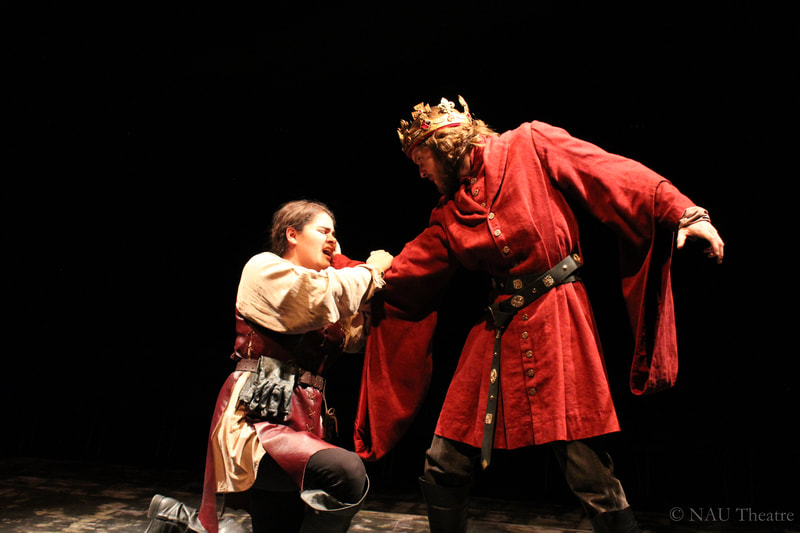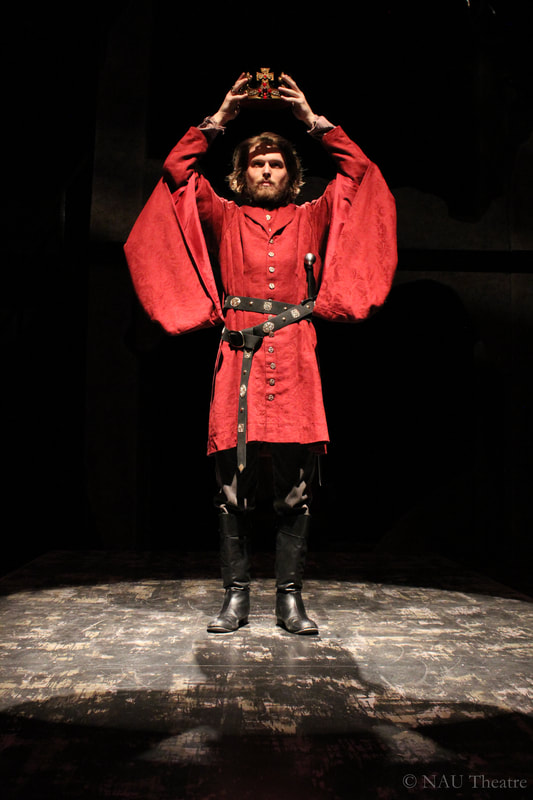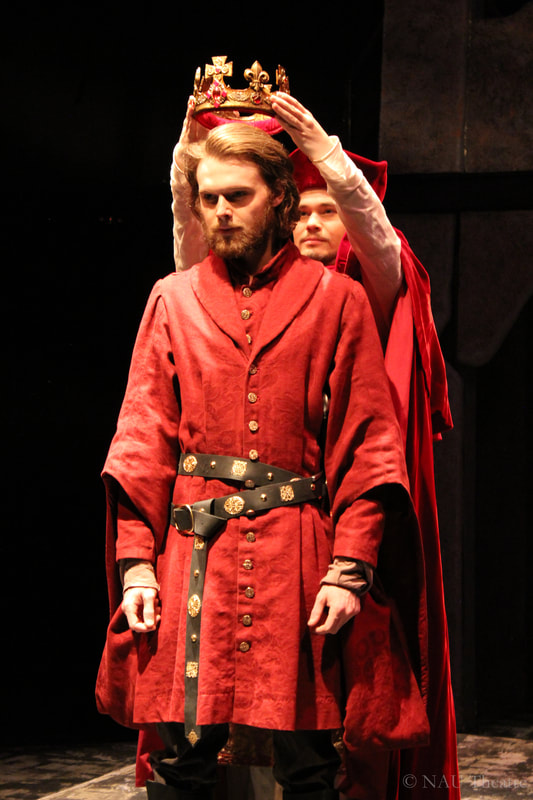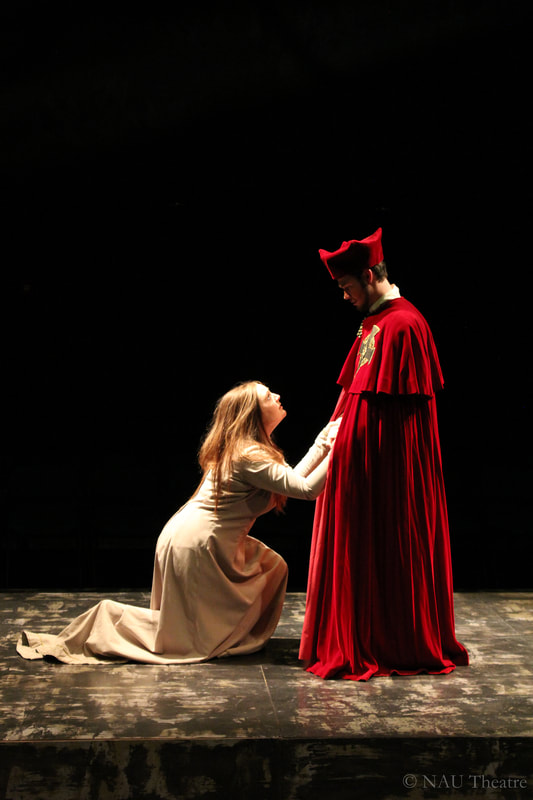Christina Gutierrez-Dennehy
As Shakespeare presents it, King John's is a world of instability, unpredictability, and, above all, of violence. In the absence of any unquestionably legitimate ruler whose right to the throne is uncontested, the characters in King John scramble to make sense of the rapid changes materializing around them. Their reaction, often rash and violent, come from self-preservation more than from a sense of justice or nobility.
Historically, John was the youngest of King Henry II's five sons, and therefore was not expected to inherit power or land. John's eldest brothers dies young, placing bis brother Richard (known later as Ricard Lionhart, famous as the absent King Richard in the Robin Hood legends) next in line for the throne after Henry II died. Richard was Henry's third son, followed by Geoffrey, who also died young, and finally John, the longest. After Richard's death, John immediately claimed the throne, despite the existence of young Arthur, Geoffrey's son. Because Geoffrey was John's older brother, many believed the crown should have passed to his living descendants before it passed to John. Throughout the play, John fights to keep the crown he believes to be his, even as his obsession with power drives away his family and countrymen.
My King John was an exploration of bad leadership, and a hard look a the disastrous effects created by an unpopular ruler more concerned with maintaining power than with maintaining a country. As such, the world it presents is an unstable one in which the threat of violence is ever present. This violence encompasses both actual warfare and intimate moments of physical brutality that call into question the relationship between affection and aggressing. King John is a far cry from the courtly world of Shakespeare's other history plays, most of which are peopled with characters deeply concerned with honor (like Henry V), with having a good time (Falstaff), or with both. Rather, this is a a play about survival and the often impossible decisions that characters must make in order simply to stay alive.
In staging the play, I was well aware that there were moments that were hard to watch, particularly given the repeated episodes of violence in our own world. I did not stage any of it lightly. Rather, I presented the show as a window into the possibilities opened when leadership fails.
This production is one of three that form the backbone of my analysis of casting practices in American productions of Shakespeare's histories in my book project, Like a King: Casting Shakespeare's Histories for Citizens and Subjects.
